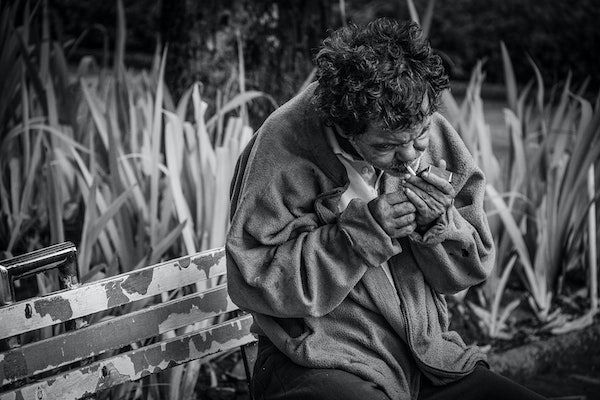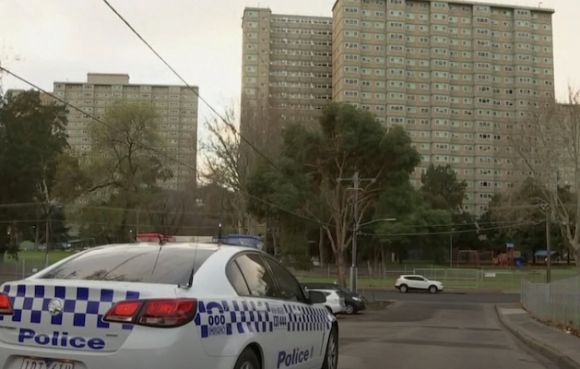Lockdown poses big challenges for the rehabilitation community, who rely on social interaction to aid drug and alcohol recovery, writes Rhys Harmer.
SEVEN PM, Wednesday, Cheyenne sits with her lukewarm Milo and Iced Vovo biscuits. She is waiting for the first speaker to commence the Alcoholics Anonymous (AA)meeting, but the Wi-Fi signal has yet again lost its connection at Cheyenne’s house, just 30 kilometres east of Melbourne. These weekly meetings used to be at St John’s church in Mooroolbark, but now they can only be found at a web address.
Ever since Victoria declared a state of emergency on 16 March, almost every event or gathering was cancelled or postponed so as to mitigate the spread of COVID-19. While this was an inconvenience for some, it was a loss of income for others.
But for an even smaller community, restrictions meant the loss of an essential tool needed for drug and alcohol recovery: social interaction. And now that Melburnians have entered into a six-week-long period of isolation with stage four restrictions in effect, it is going to be even tougher for those who require a strong social network to combat substance use.
One of the main things we learn in recovery is that connection is the opposite of addiction. Making connections by joining the gym, attending yoga classes or AA meetings is impossible now and isolation is a silent killer for us addicts and alcoholics. Isolation is so unhealthy for someone in recovery, especially when only "essential businesses" are staying open and the bottle shop is considered "essential", but meetings are not. It's sad watching the people I care about return to old habits.
AA and Narcotics Anonymous (NA) meetings are prohibited under stage three restrictions – which came back into effect on 22 July – and now people in recovery must continue to connect virtually with the aid of Zoom meetings.
Cheyenne explained:
“The AA and NA community create the [online] meetings for themselves and each other. One of our spiritual principles is to decline outside contributions and to stay self-supporting.”
But can social media platforms support an entire community that relies on constant human interaction to keep its members in good health?
Cheyenne acknowledged that her connection to the rehabilitation community has dwindled.
Technology can only provide so much, said Cheyenne:
“I've had a friend pass away during this pandemic and another friend has started using again just to help pass the day. We can't do the things we learnt in rehab that keep us sober.”
But, there are advantages for those who used to be separated by time and space from the AA and NA community. Travelling to meetings from afar is no longer an issue, nor is the time it takes to logout early from a meeting when the kids are calling for dinner.
Of course, not everyone can afford the technology needed to stay virtually connected to their lifelines when the loneliness of isolation leads to lingering thoughts about drugs and alcohol.
However, the Coronavirus Supplement – which has doubled the income for millions – has afforded at least one person the technology to stay connected and has even allowed her new academic prospects.
Having completed her first week at Tafe and on her way to earning a Certificate IV in Mental Health, Cheyenne Harnett said:
“The supplement money has honestly helped so much and it has made isolation that much easier. I bought a laptop for online AA and NA meetings. I've bought art supplies for my new hobby and I’ve started studying online.”
Melissa Johnson (not her real name), an Alcohol & Other Drugs (AOD) counsellor at a Victorian rehabilitation facility, told Independent Australia that while this supplement is beneficial to those needing financial stability, it may be dangerous to others in recovery.
Melissa Johnson said:
“Clients’ spending is controlled somewhat in rehab, but they would not be able to maintain control if not supported 24/7.”
According to Melissa, the facility has had to cancel all visitations – ingoing and out – along with all external activities: AA/NA meetings, gym, yoga and communal walks. Clients now have extended phone accessibility to connect with friends, family, sponsors and psychologists, all to help maintain a level of connection — something that is imperative to the recovery process.
As the coronavirus curve in Victoria struggles to flatten unlike it has in other states, our personal connections will continue to feel strained, which will inevitably become a detriment to the mental health of those battling addiction.
Despite this, the rehabilitation community has leveraged as many technological resources as possible and is urging those in need to stay connected via telephone/online services.
Rhys Harmer is a student writer at Curtin University, who has also studied freelance journalism. He has an interest in writing articles focused on social inequality and marginalised groups.
 This work is licensed under a Creative Commons Attribution-NonCommercial-NoDerivs 3.0 Australia License
This work is licensed under a Creative Commons Attribution-NonCommercial-NoDerivs 3.0 Australia License
Support independent journalism Subscribe to IA.












